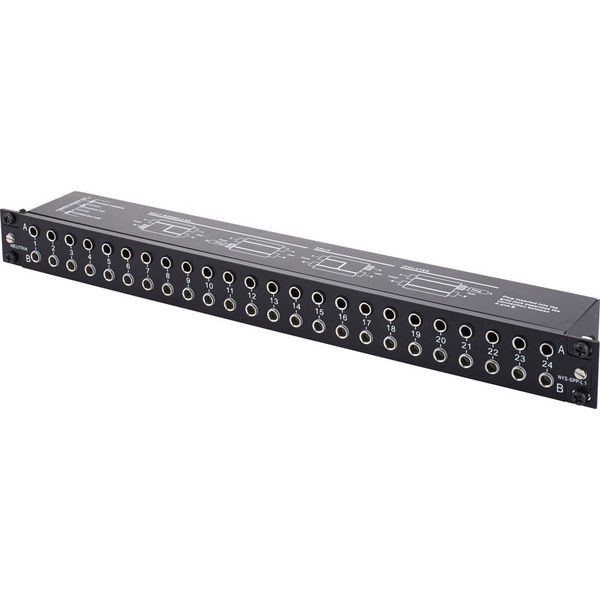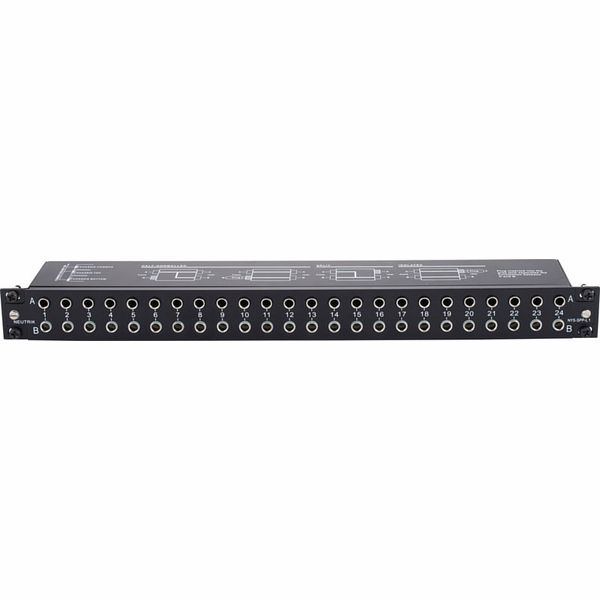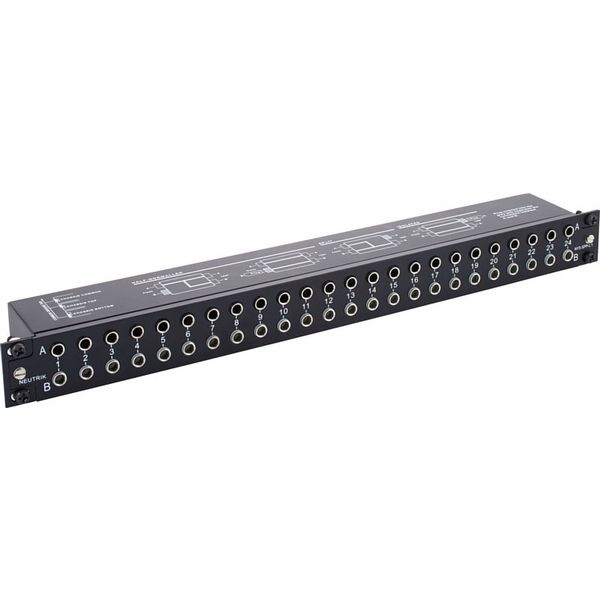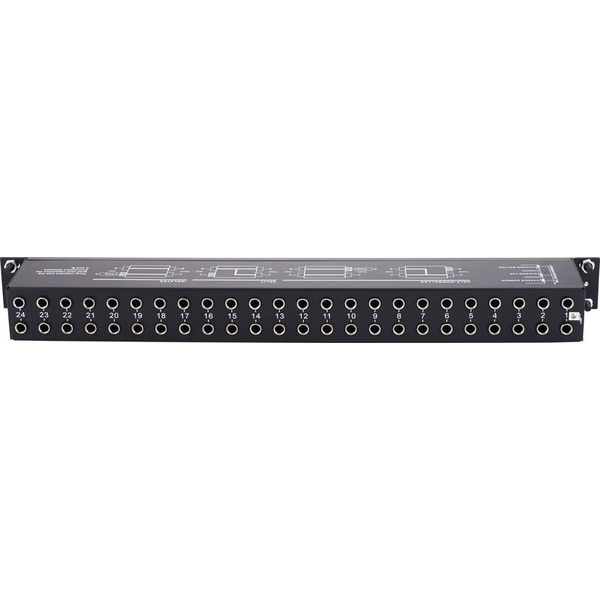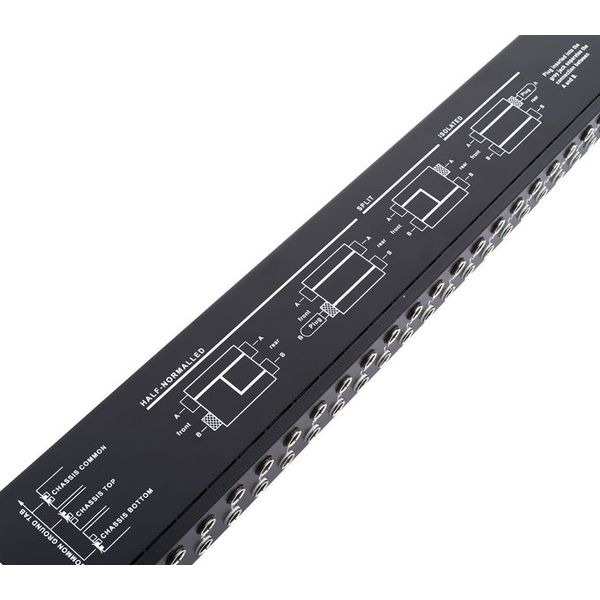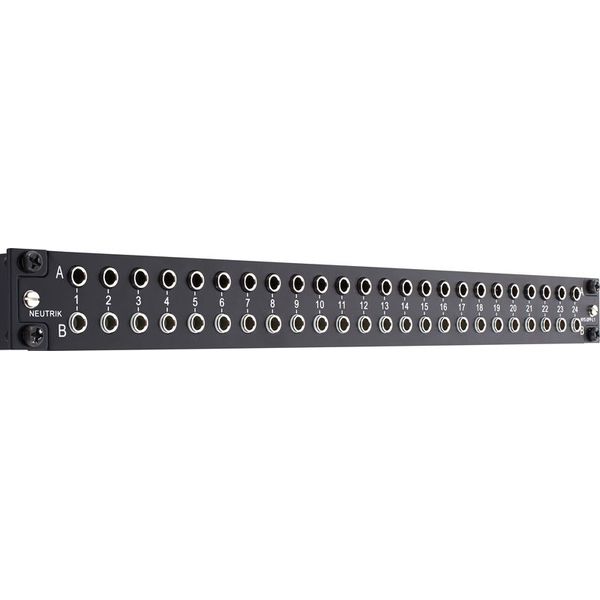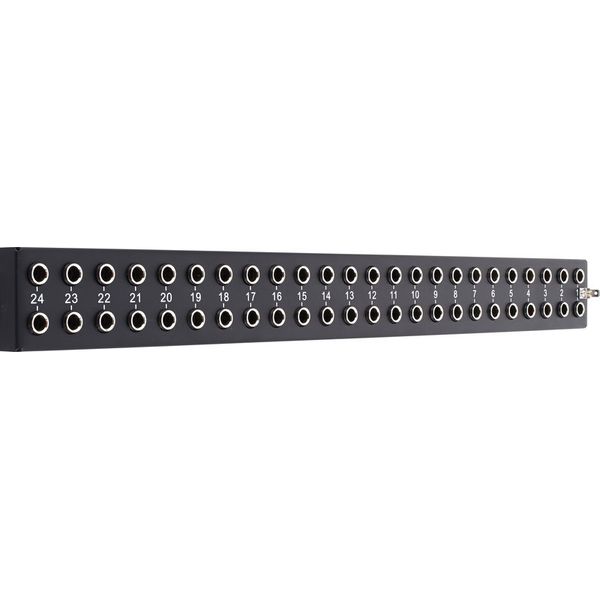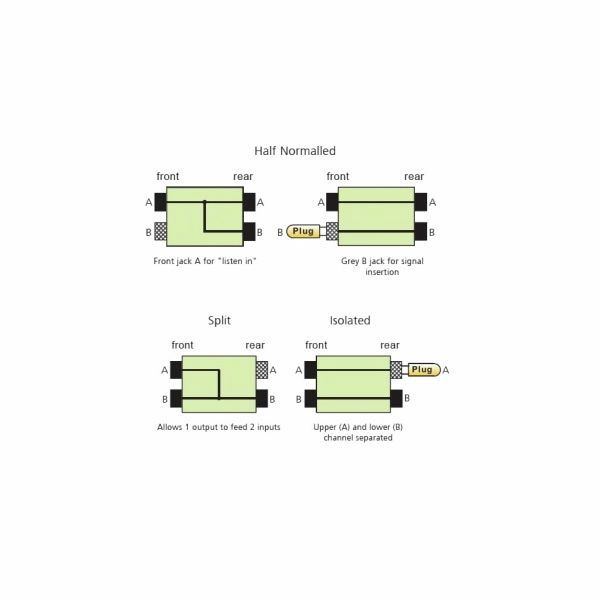If you want to take control of the cable spaghetti invading your studio, a patchbay is the answer; and with bantam units costing too much for the casual muso, these quarter-inch jack units come into their own. I have four now, arranged as one big bay three deep and a subsidiary bay on the other side of the room to handle effects sends and returns.
The units come "semi-normalised", which means that a connection made at the top of the rear panel automatically feeds down to the connection made at the bottom of the rear panel even if no patch cord is inserted in the front to link them. This is handy if you have a bunch of connections that, typically, stay the same: you can link the stereo outputs of your main keyboard, say, to inputs 1 and 2 on your audio interface in a semi-permanent fashion. Sticking a patch cord into the front sockets on a semi-normalled connection breaks the link, though, allowing you to overrride your usual setup whenever you like: and this is how I've got most of my studio arranged.
There are some connections, though, where it's better to have things totally variable, without any normalisation; and the bay allows you to set this up by unscrewing its front panel and reversing some or all of the little individual socket cards. By reinstalling them in various different configurations you can have normalled or semi-normalled functionality, or even use them as Y-splitters (what you'd call Mults in modular-synth-speak), and this can be decided on a card-by-card basis across the whole 24 pairs of sockets. Once you've got your head around the possibilities it's very flexible indeed, though a bit of a faff to replace the front panel when you're done because the little cards end up reluctant to align with the punched holes in the panel strip. But you'll get there in the end. There's a handy guide to the various configuration options silkscreened onto the top of the unit, too, which is a bit of a lifesaver if all this normalled / semi-normalled stuff is unfamiliar territory (as it was to me...)
In all ? hugely useful in taming my studio cabling, and versatile enough to accommodate lots of routing options.



